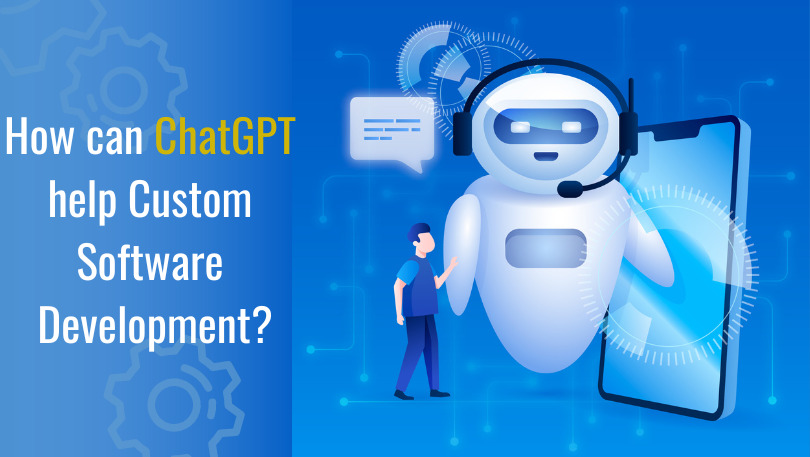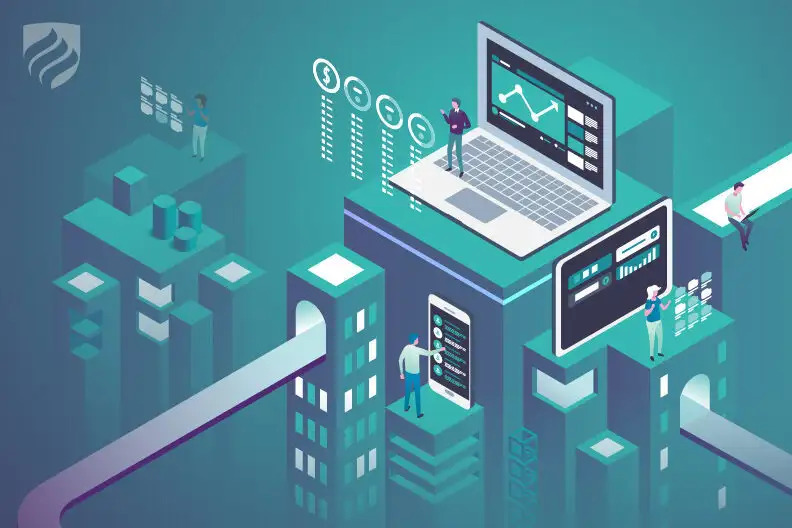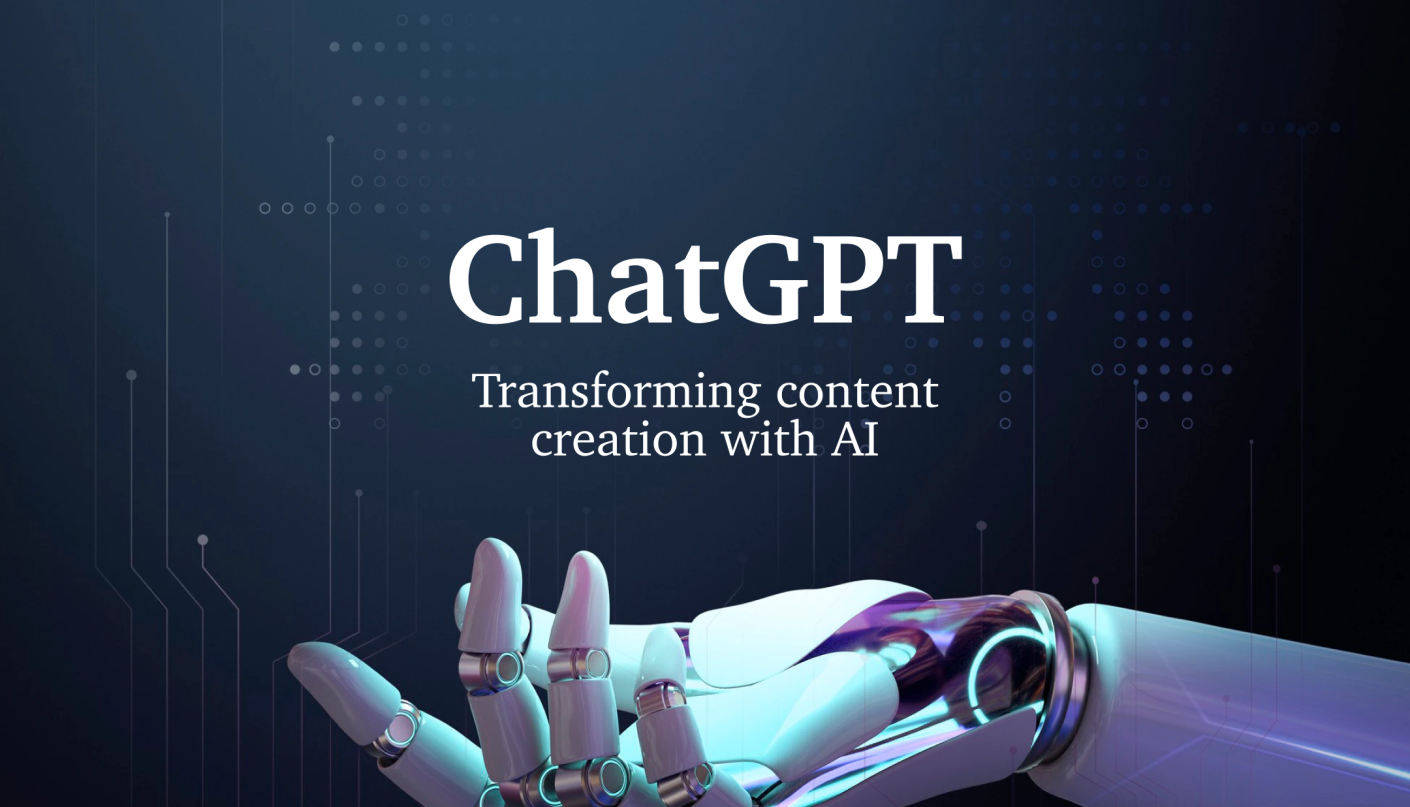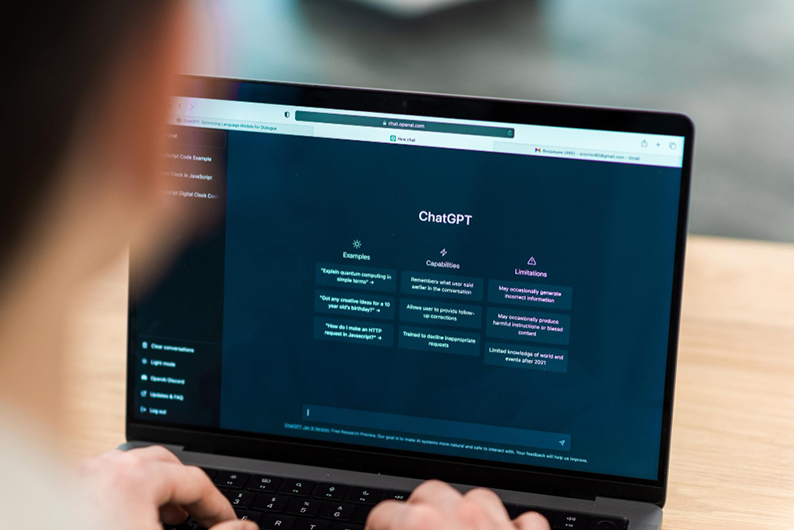Over the last few months, ChatGPT has taken the world by storm! OpenAI’s new offering has taken the age of debate of humans vs robots to another level. The extremely intelligent chatbot is being used by professionals in every field to make their work easier, faster, and more efficient, and the custom software development sector is no different.
So, how does ChatGPT help in custom software development?

Contradictory to popular opinion, it is safe to say that ChatGPT can be used in favor of Custom Software Solutions without snatching the jobs of software developers. The AI tool can be used to enhance the services offered by custom software development companies by having a 24/7 virtual assistant for support. While AI is not capable of thinking creatively and breaking the conventional trends it is limited to, it can always help software developers leverage their services and build better applications.
Before we dive into the benefits of ChatGPT in the world of custom software development, let us briefly understand the tool.
OpenAI’s ChatGPT – What Is It?
ChatGPT is a large language model developed by OpenAI, based on the GPT (Generative Pre-trained Transformer) architecture. The tool has been trained on an enormous amount of text data, allowing it to generate human-like responses to a wide range of prompts and questions. It uses machine learning algorithms to analyze the input and predict the most appropriate response based on its training data.
ChatGPT has been designed to be highly versatile, allowing it to answer questions, engage in conversation, and even generate text. It can be used for a wide range of applications, including customer service, language translation, and content creation. Its ability to generate human-like responses has made it a popular tool for chatbots, virtual assistants, and other conversational AI applications.
How Does ChatGPT Work?

Just like a human, ChatGPT is trained to imbibe information, learn it, and use it to provide personalized answers to specific questions. The training process for ChatGPT involves feeding the model vast amounts of text data, such as books, articles, and web pages. This allows the model to develop a robust understanding of language and learn to predict the next word in a sentence based on the context provided by the previous words. The training process also includes a process called “masking,” which involves randomly replacing some of the words in the training data with a special token. This encourages the model to learn to generate missing words based on the surrounding context.
When a user inputs a prompt or question, ChatGPT processes the text using its transformer algorithm, which breaks the input into a sequence of tokens and processes them through a series of layers. Each layer processes the input in a different way, using a combination of attention mechanisms and feedforward neural networks. The attention mechanisms allow the model to focus on relevant parts of the input, while the feedforward networks learn to make predictions based on the attention outputs.
Once the input is processed, the AI tool generates a response by predicting the most likely sequence of words to follow the input. This is done using a beam search algorithm, which generates a range of possible responses and selects the most likely one based on the model’s predictions. The selected response is then sent as output to the user as a text message or other suitable forms.
Benefits Of ChatGPT In Custom Software Development
Now that we have a fair idea about what ChatGPT is and how it functions, let us dive into its utility in the field of custom software solutions:
Natural Language Processing
ChatGPT’s advanced language processing capabilities allow it to understand and generate natural language text, making it a valuable tool for creating chatbots, virtual assistants, and other conversational interfaces. By using ChatGPT, custom software developers such as IntelliSourcecan create software that can understand and respond to user requests in a natural and intuitive way, improving the user experience and making the application user-friendly.
Reduced Development Time
ChatGPT can automate a range of different tasks associated with custom software development, such as generating code, testing software, and analyzing user behavior. This can help developers reduce development time and improve efficiency, allowing them to focus on more complex and creative tasks. For example, by automating the process of generating code, developers can save time and focus on designing and implementing more advanced features.
Improved Customer Service
One of the most amazing uses of ChatGPT for software developers is its capability to handle customer service inquiries and provide 24/7 support. This allows developers to improve customer satisfaction by providing prompt and effective assistance to customers, even outside of regular business hours. Additionally, chatbots and virtual assistants can handle a large volume of inquiries, reducing the workload of human customer service representatives and allowing them to focus on more complex issues.
By incorporating such chatbots in the custom software they build, developers can help their clients provide seamless support to their customers.
Personalization
Custom software development is all about personalization. By analyzing user behavior and preferences, ChatGPT can provide personalized recommendations and tailored experiences to software developers.
Depending on the projects they are working on, custom software developers can ask the AI tool for tips, recommendations, and suggestions regarding the code to use, features to add, and the approach to follow in order to get the desired results. This streamlines the development process and makes it much more valuable to the clients.
Language Translation
ChatGPT can be used to translate text from one language to another, allowing software to support users from around the world. This can be particularly useful for businesses that operate in multiple countries and need to communicate with customers in different languages. By using ChatGPT for language translation, custom software developers can build software applications capable of translating texts in multiple languages on demand.
Content Creation

ChatGPT can be used to generate content automatically, such as documentation, error messages, and help text. This can save time and reduce the workload of content creators, allowing them to focus on more creative tasks. For example, by automating the process of generating documentation, developers can save time and focus on designing and implementing more advanced features.
Prediction And Data Analysis
ChatGPT possesses the ability to process vast quantities of data and generate predictions based on that data. Its potential applications range from creating recommendation systems to developing predictive analytics software and other data-driven solutions. By utilizing ChatGPT, developers can leverage its powerful machine learning capabilities to analyze data and generate insights, leading to more effective decision-making and improved outcomes.
Rewriting Code
Custom software developers are often required to rewrite codes while building cross-platform applications or making necessary changes during the testing phase. AI platforms like ChatGPT make rewriting codes easier for developers, allowing them to produce the required code in the desired format(s).
Limitations Of Using ChatGPT For Custom Software Development
Along with knowing the benefits ChatGPT has in store for you, it is important to understand the limitations of using the AI tool while working on a software development project.
Here are a few major limitations every developer should keep in mind while offering custom software solutions to their clients:
Data Quality
ChatGPT relies on large amounts of data to train its language models, and the quality of that data can significantly impact the accuracy and effectiveness of the resulting model. If the training data is biased or incomplete, the model may produce biased or incomplete results, leading to incorrect predictions or recommendations.
The Lack of Contextual Understanding
While ChatGPT can generate natural language text, it may not always fully understand the context of the conversation or the user’s intent. This can lead to misunderstandings or incorrect responses, especially in situations where the conversation is complex or the user’s intent is ambiguous.
Limited Domain Knowledge
ChatGPT’s language models are trained on a wide range of text data, but they may not have a deep understanding of specific domains or industries. For example, a chatbot designed for the healthcare industry may struggle to understand medical terminology or handle complex medical scenarios.
Computing Power Requirements
The AI tool requires significant computing power and resources to train and run its language models. This can be a challenge for smaller development teams or organizations with limited resources, as it may require specialized hardware or cloud computing services to support the training and deployment of ChatGPT-based solutions.
Ethical Concerns
As with any modern technology that involves large data volumes and automated decision-making, there are ethical concerns around the use of ChatGPT. For example, biased or discriminatory language in the training data can lead to biased or discriminatory results, which can perpetuate social inequalities.
The Final Word
These were some of the most important aspects to consider if you are planning to use ChatGPT in offering custom software solutions. While ChatGPT comes with a host of benefits, it is important to control your team’s dependence on the tool. Always prioritize human creativity over machine learning to bring new ideas to the world and help your clients thrive in their respective domains!

